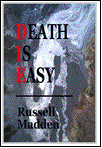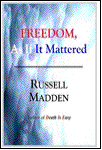 |
 |
|
|
 |
 |
|
|
Traditional morality holds that being honest is the proper way to act. More recently, however, our citizens are growing increasingly comfortable with the notion that lying is fine as long as you achieve your goals. Such "practical" people laugh at the "chumps" who believe they must tell the truth regardless of any negative consequences.
The guideline of "honesty is always the best policy" is prominent because of the Ten Commandments. "Thou shall not lie" is essentially a "rule" handed down by a "higher authority." As humans, we are supposed to accept this rule and follow it without question.
The guideline of "lying when necessary" is best seen as an example of the "rule" that "there are no rules." Essentially, this boils down to the idea that "the ends justify the means." If what we want is important enough, then we should do whatever is required to reach that end.
Neither of these are satisfactory in telling us how to approach ambiguous situations where it is unclear whether we should tell the truth. The first rule may tell us to be honest but the facts we face may suggest that to do so would hurt us. Since most people want to be moral, many of them will opt to tell the truth and suffer because of it.
The second rule offers a different set of problems. An ends-justifies-the-means rule violates an important property of good morality. A valid morality is supposed to help us decide what to do...yet this guideline says that there are no guidelines; that "anything goes." Someone attempting to appeal to this guideline will frequently be left floundering or will seize impulsively on the first possibility for action which presents itself. Only if one "succeeds" will one know if that action was, in fact, the right one to follow. In addition, since frequent lying clashes with our common sense beliefs about morality, a casual attitude to lying and cheating will leave many people uneasy. Yet they may continue to be dishonest because that is what they feel they "should do."
The way to deal with this puzzle is first to realize that there is a difference between a moral rule and a moral principle. The first requires blind acceptance and demands we apply the rule in a rigid fashion in any and all possible circumstances. The second provides us a general guideline which must be put into practice according to the specific context confronting us.
Questions concerning honesty are ethical/moral in nature. Somebody might ask whether we even need ethics. Yet ethics is essential to human life and prosperity. Since we are beings who have free will, we often face alternatives among which we must select.
If we want to be successful and happy as people, we must make our choices in ways that will best help us to flourish. We need to obtain values which will aid us in that quest. Those values may be material (for example, food, shelter, or clothing) or intangible (for example, love, prestige, self-esteem) but are determined by what it means to be a human being.
Unlike, say, sunflowers or bugs, much of what we do is not automatic. We must think about ourselves and our place in the world and choose accordingly. But this also means we can make incorrect choices, ones which make it less likely we will succeed as human beings. This is where ethics comes into play. A proper ethics helps us to choose actions in harmony with our basic human nature and to avoid self-destructive ones.
Because all people face this same requirement, we all must be able to act in ways that allow us to obtain and use those values we want and require without coming into conflict with or infringing on the same right of others to do the same.
When it comes to honesty then, the proper principle can be stated like this: "You must always be honest when trying to obtain values from other people, but you can and should lie when someone is trying to take values from you against your wishes or when you are trying to retrieve stolen values."
For example, it would be wrong to lie: to a date in order to obtain her admiration or love; to a prospective employer to obtain a job; to a customer to get him to buy a product from you.
On the other hand, it would be right to lie: to a thief demanding to know the location of your safe; to a Nazi asking if you are harboring any Jews; to a con man to regain money he swindled you out of.
Unlike the two rules discussed earlier, this contextually absolute principle looks at the world as it is, at human nature and its requirements, and provides the proper guidance in making decisions in diverse situations.